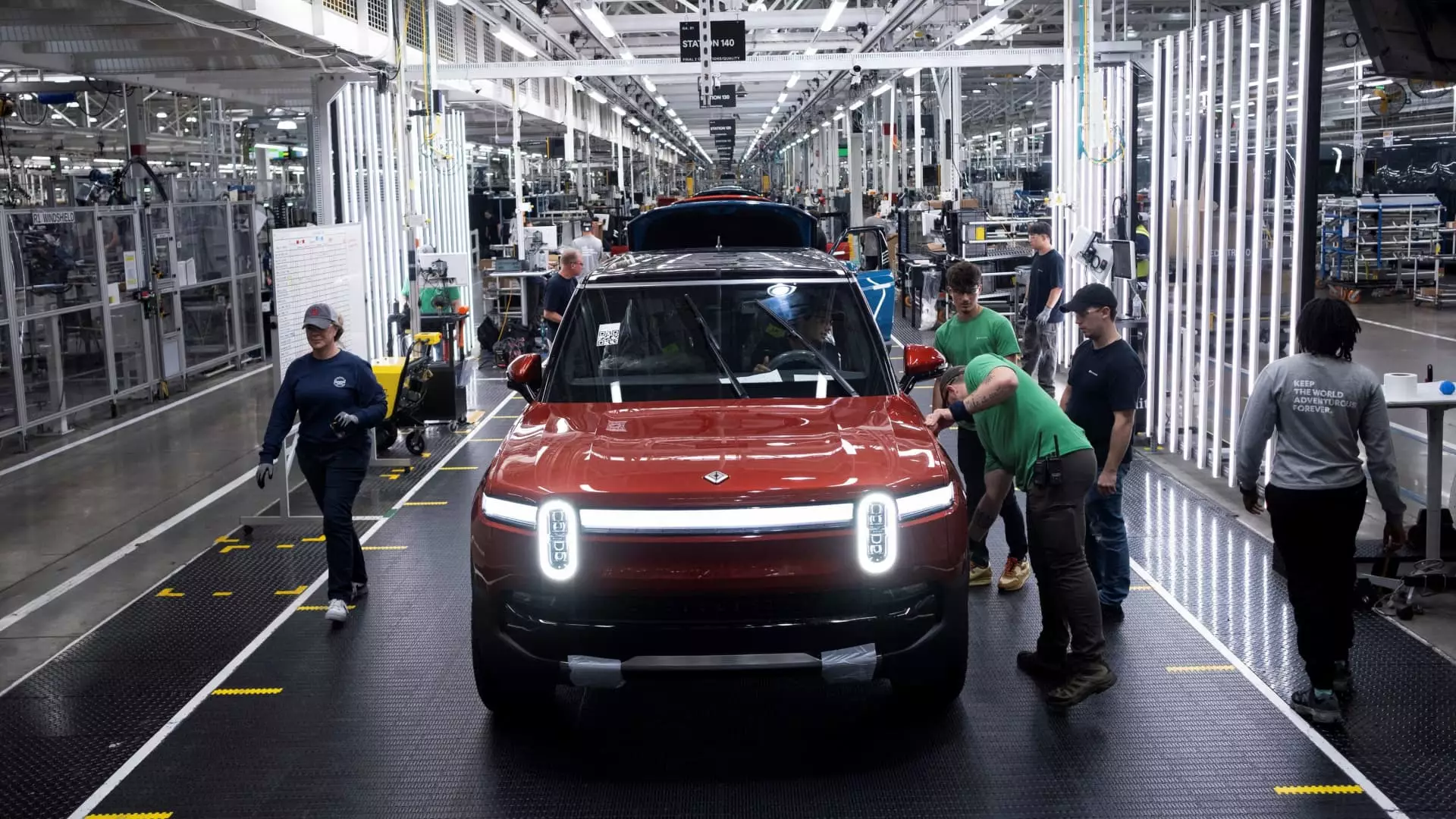Rivian Automotive, a leading player in the electric vehicle (EV) market, encountered a significant setback in early trading this Friday, causing shares to tumble nearly 4%. The company’s third-quarter performance fell short of analysts’ expectations, primarily due to a notable reduction in vehicle deliveries and a downward adjustment of its annual production forecast for 2024. Originally projecting to produce 57,000 units, Rivian has now revised this figure to a range between 47,000 and 49,000 vehicles.
The adjustment was attributed to “production disruption due to a shortage of a shared component” critical to its R1 line of electric vehicles and commercial vans. This component shortfall first emerged during the third quarter and has intensified in recent weeks, prompting stalemate issues in the company’s supply chain. A spokesperson confirmed that the component in question is integral to Rivian’s in-house motor systems but withheld specific details about the nature of the shortage.
Rivian’s CEO, RJ Scaringe, recently shared insights during a Morgan Stanley investor conference, hinting at broader challenges within the company’s supplier relationships. He noted persistent difficulties with several suppliers, underscoring the fragility of multi-tiered supply chains. Such complexities often lead to delays and disruptions that can adversely affect production schedules and ultimately impact delivery timelines for customers.
Despite these hurdles, Rivian maintained its annual delivery forecast, projecting a modest increase of low single-digit growth compared to 2023, which is anticipated to yield between 50,500 and 52,000 vehicle deliveries. This optimistic outlook seems cautious, especially considering the current market dynamics and ongoing competition from established automakers like Tesla and General Motors.
In its quarterly update, Rivian reported producing 13,157 vehicles at its Illinois manufacturing site during the third quarter, with deliveries totaling just 10,018 units. These figures are especially noteworthy given that analyst estimates had predicted a delivery number around 13,000 vehicles. The underperformance highlights the persistent struggle Rivian faces in meeting anticipated production levels and managing investor expectations.
Adding to the company’s worries, Rivian’s stock performance has dramatically declined over the past year, down more than 50% in 2024. Factors contributing to this downturn include slower-than-anticipated EV demand and significant cash outflows that have raised concerns about the company’s financial sustainability in a competitive marketplace.
The Road Ahead for Rivian
As Rivian navigates through these turbulent times, the resolution of its supply chain issues will be pivotal for its recovery and future growth prospects. The EV market remains poised for growth, but companies must streamline production and address component shortages effectively to capture market share. Going forward, investors and analysts will be keenly watching Rivian’s ability to overcome these challenges and deliver on its revised production targets while enhancing its operational resilience. The developments in the upcoming quarters will be crucial for determining Rivian’s path and its position within an increasingly crowded electric vehicle landscape.

